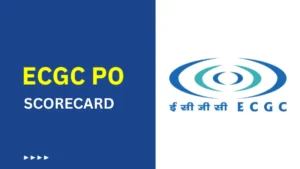Dear Readers,
The reasoning is a game of wits and presence of mind! Yes, it is true and it might seem as the greatest of the challenge after English Section’s surprises but yet this one can easily be dealt with. You just need correct practice and hardwire your brain to quickly make decisions about what to attempt and what to leave. And for same we are providing you questions of Reasoning Question and Answers. Solve these to Practice latest pattern reasoning question for bank exams.
Directions (1-5): Study the following information and answer the given questions:
Seven teachers I, J, K, L, M, N and O live on separate floors of a 7-floor building. Ground floor is numbered 1, first floor is numbered 2 and so on. Each of them is teaching different subjects, viz. Hindi, English, Math, Science, Civics, History and Sanskrit but not necessarily in the same order.
Only three teachers live above the floor on which I lives. Only one teacher lives between I and the one who teaches History. N lives immediately below the one who teaches English. The one who teaches English live on an even-numbered floor. Only three teachers live between the teachers who teach History and Math. M lives immediately above the K. M does not teach Math. Only two people live between J and the one who teaches Civics. The one who teaches Civics lives below the floor on which J lives. The one who teaches Hindi does not live immediately above or immediately below J. L does not live immediately above or immediately below I. O does not teachScience.
Only three teachers live above the floor on which I lives. Only one teacher lives between I and the one who teaches History. N lives immediately below the one who teaches English. The one who teaches English live on an even-numbered floor. Only three teachers live between the teachers who teach History and Math. M lives immediately above the K. M does not teach Math. Only two people live between J and the one who teaches Civics. The one who teaches Civics lives below the floor on which J lives. The one who teaches Hindi does not live immediately above or immediately below J. L does not live immediately above or immediately below I. O does not teachScience.
Q1. Which of the following is true with respect to O as per the given information?
(a) The one who teaches English lives immediately below O.
(b) O lives on floor no. 7
(c) O lives immediately below M.
(d) O lives on the lowermost floor.
(e) OteachesHistory.
Q2. Who among the following lives on floor no. 3?
(a) The one who teaches Science
(b) The one who teaches Civics
(c) K
(d) O
(e) M
Q3. Who lives on the floor immediately above M?
(a) I
(b) J
(c) L
(d) O
(e) N
Q4. L teaches which of the following subject?
(a) English
(b) History
(c) Math
(d) Civics
(e) Science
Q5. How many teachers live between the floors on which L and the one who teaches English live?
(a) None
(b) Two
(c) One
(d) More than three
(e) Three
Directions (6-10): Study the information and answer the following questions:
In a certain code language
‘money is not require’ is written as ‘sx nc ho qz’,
‘way and supply money’ is written as ‘mo ta pa sx’,
‘require for more part’ is written as ‘zi nc ne ki’ and
‘way for supply money’ is written as ‘zi mo sx ta’.
Q6. What is the code for ‘require’ in the given code language?
(a) qz
(b) mo
(c) pa
(d) ta
(e) nc
Q7. What is the code for ‘supply’ in the given code language?
(a) Only ta
(b) Only mo
(c) Either pa or mo
(d) Only pa
(e) Either mo or ta
Q8. What may be the possible code for ‘way only more’ in the given code language?
(a) xi ne mo
(b) mo zi ne
(c) ki ne mo
(d) mo zi ki
(e) xi sx ta
Q9. What may be the possible code for ‘work and require’ in the given code language?
(a) pa qz nc
(b) pa nc tu
(c) mo nc pa
(d) tu nc qz
(e) pa nc ne
Q10. What is the code for ‘for’ in the given code language?
(a) mo
(b) pa
(c) ne
(d) zi
(e) ho
Directions (11-15): In the following question, the symbols @, ©, $, & and * are used with the following meanings as illustrated below:
‘P © Q’ means ‘P is not smaller than Q’.
‘P * Q’ means ‘P is not greater than Q’.
‘P @ Q’ means ‘P is neither greater than nor equal to Q’.
‘P $ Q’ means ‘P is neither smaller than nor equal to Q’.
‘P & Q’ means ‘P is neither greater than nor smaller than Q’.
Q11. Statement: J $ K, K * T, T @ N, N © R
Conclusion:
I. J $ T
II. R * T
III. N $ K
IV. R * K
(a) None is true
(b) only I is true
(c) only II is true
(d) only III is true
(e) only IV is true
Q12. Statement: F & W, W © R, R @ M, M $ D
Conclusion:
I. D @ R
II. M $ F
III. R @ D
IV. R * F
(a) None is true
(b) Only III is true
(c) Only I is true
(d) Only IV is true
(e) Only II is true
Q13. Statement: H @ B, B * V, V © E, W $ V
Conclusion:
I. W $ E
II. H @ E
III. H @ V
IV. W $ B
(a) only I and II are true
(b) only I, II and III are true
(c) onlyI, III and IV are true
(d) All are true
(e) none of these
Q14. Statement: R © K, K * N, N $ J, J $ H
Conclusion:
I. R $ N
II. J @ K
III. H @ N
IV. R $ H
(a) only I is true
(b) only III is true
(c) only II is true
(d) none of true
(e) only IV is true
Q15. Statement: K * D, D $ N, N & M, M © W
Conclusion:
I. M @ K
II. N @ K
III. M @ D
IV. W * N
(a) only I and II are true
(b) only III and IV are true
(c) only I, II and III are true
(d) All are true
(e) none is true
You May also like to Read:





 GA Capsule for SBI Clerk Mains 2025, Dow...
GA Capsule for SBI Clerk Mains 2025, Dow...
 The Hindu Review October 2022: Download ...
The Hindu Review October 2022: Download ...
 ECGC PO Scorecard 2025 Out, Check Marks
ECGC PO Scorecard 2025 Out, Check Marks




